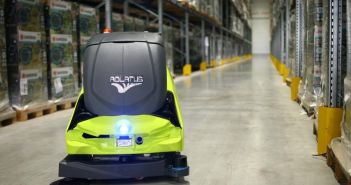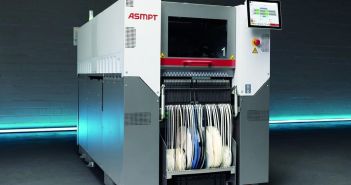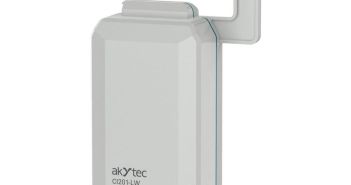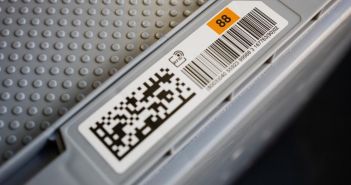The recent Nexperia crisis has exposed the fragility of global supply chains by drastically limiting access to commodity chips. Bosch, ZF and Volkswagen faced severe production slowdowns due to shortages of diodes, transistors and voltage regulators. While the European Chips Act promotes advanced research and development, component risks remain. btv technologies counters these vulnerabilities with its TAK Supply-Chain-as-a-Service solution, offering real-time transparency, dynamic safety stocks, centralized inventory and regulatory compliance.
Table of Contents: What awaits you in this article
Production Halts Without Standard Diodes, Transistors And Voltage Regulators
Discussions surrounding advanced semiconductors for artificial intelligence and fifth-generation wireless sometimes overlook the essential support components such as diodes, transistors, and voltage regulators. These basic parts constitute the backbone of countless manufacturing workflows across diverse sectors including mechanical engineering, medical devices, industrial automation, consumer electronics. Although seen as trivial, shortages or interruptions in their supply chains can immediately halt operations from small and medium-sized enterprises to multinational conglomerates, jeopardizing productivity.
Netherlands Revokes Nexperia Control From Wingtech Under US Pressure
In late September, under US diplomatic pressure, the Dutch government revoked control of Nexperia from its Chinese parent company, Wingtech. Beijing promptly instituted an export embargo on critical semiconductor components, halting shipments destined for global manufacturers. Although Chinese authorities hinted at potential deregulation in early November, the scope of permitted chip categories remains unspecified. Industry stakeholders continue to face uncertainty regarding approval timelines and component availability, complicating supply chain planning and risk assessments.
Geopolitical Risks Strain Modern Supply Chains Amid Component Scarcity
Modern supply chains endure stressors that jeopardize reliability. Geopolitical tensions trigger sudden export restrictions and trade barriers, heightening operational risk. Component allocation practices exacerbate shortages and induce price hikes. Simultaneously, surging counterfeit rates compromise product quality and safety. Firms also grapple with compliance mandates under NIS2 cybersecurity requirements, the Cyber Resilience Act, the Corporate Sustainability Due Diligence Directive and raw material export controls on gallium and germanium, adding significant complexity.
PwC Strategy& Warns of Automotive Chip Shortage by 2030
PwCs Strategy& projects a looming second semiconductor shortage in the automotive sector, forecasting annual chip demand growth exceeding 10 percent through 2030 while vehicle sales increase by only 5.6 percent. This divergence highlights a substantial supply-demand imbalance that could disrupt manufacturing. Modern premium vehicles already integrate over 18,000 electronic components, including thousands of critical semiconductors, underscoring the industrys heavy reliance on resilient semiconductor supply chains for uninterrupted production and innovation.
1990s Lean Strategies Reach Limits, Demanding Resilient Supply Chains
Lean strategies from the 1990s have reached diminishing returns, exposing vulnerabilities in inventory models. Instead of relying on lean global warehouses vulnerable to disruption, operations require visibility across the entire supply network, adaptive buffer stock levels adjusted in real time, and flexible logistics services accessed through a service-oriented platform. Combining comprehensive real-time tracking data, warehousing capabilities, and proactive replenishment schedules, service-based logistics maintain continuity and operational resilience within unpredictable environments.
TAK Model Separates Service And Product Costs For Transparency
The TAK model, focusing on Transparency, Agility and Cost Efficiency, separates component pricing from service charges to enable cost management. It provides clients with dedicated buffer inventories, real-time logistics tracking and consolidated warehousing. An extensive portfolio of over seventy modular servicesâfrom long term storage and testing to flexible assemblyâaddresses all five supply chain threat scenarios. Having proven resilience during the 2021 semiconductor shortage, it reliably cushions against significant future bottlenecks.
TAK Model Delivers Proactive Resilience With Real Time Transparency
btv-technologies TAK model separates product pricing from service fees, ensuring cost transparency. It maintains continuous component availability via dynamic safety stocks and centralized inventory, reducing dependency on geopolitically vulnerable suppliers. Real-time monitoring and compliance modules mitigate counterfeit risks satisfying EU regulations. A suite of modular servicesâtesting, assembly, long-term storageâshifts procurement from reactive crisis response to proactive resilience-building, delivering predictable performance, reduced costs, and fortified supply chains for industries facing uncertainties.














